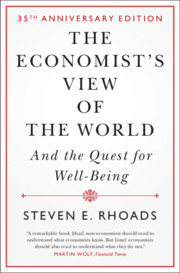Economists are, at best, skeptical of politicians who trumpet industrial policies; they point to their failures in this country and abroad. They wish the politicians’ electoral mantra was “Growth, growth, growth,” not “Jobs, jobs, jobs.” They believe the focus on jobs leads to subsidies for declining industries where there are lots of workers and voters rather than for industries of the future, where there are few. Economic growth and higher standards of living inevitably mean that employment patterns will change over decades.
Even left-of-center economists love markets. For example, in their introductory economics textbook, New York Times columnist Paul Krugman and his wife Robin Wells say: “Markets are an amazingly effective way to organize economic activity.” By shrinking profits, and, in their wake, workforces, markets help societies create workforces with better-paying jobs.
Most economists, however, support government interventions to combat the monopolistic power of firms and to support some standards of safety for workers. An increasing number would support raises in the minimum wage. Nevertheless, economists strongly oppose the rapid increase in the licensing of occupations as well as many other regulations imposed on firms.
